|
To all those who are in my upcoming trip to Greece, this is something that everyone must do - kiss the toe of Aristotle!
0 Comments
Tracing Paul's Second Missionary Journey in Greece - 6: Philippi - Not Really A Homogeneous Ekklesia17/4/2015 After Paul and Silas were released from prison, they went to Lydia's house, "where they met with the believers and encouraged them" (Acts 17:40). After this, Paul and his companions left Philippi and travelled to Thessalonica. By the time Paul left Philippi, a rather vibrant ekklesia had been established and met in Lydia's house. Who were the "believers" (Acts 17:40) in this ekkelsia? We know that according to the narrative in Acts, they include Lydia and her household (Acts 16:15) and the jailer and his household (Acts 16:34). We can only conjecture that the other women who gathered with Lydia by the river (Acts 16:13) and the slave girl delivered from the spirit of Python (Acts 16:16-18) would most likely join this group of believers as well. By the time Paul left Philippi, the first ekklesia established in Macedonia would number approximately 15-20 by my estimation. If we take a look at the composition of the believers in Philippi, this fledgling church is anything but homogeneous. People from various social status and standing form this church, and it cuts across the social structure of the day. From the rich (e.g., Lydia) to the poor (e.g., the slave girl), they worship the Lord together. Apart from its diverse social economic set up, what are some of the characteristics of this ekklesia? After casting out the spirit of Python from the slave girl, the owners dragged Paul and Silas (note that Luke is excluded here) to face the magistrates which led to their flogging and imprisonment, with a jailer guarding them carefully (Acts 16:19-24). According to tradition, the following photos depict the location of the prison cell where Paul and Silas spent the night. However, this tradition has been disputed, and this exact location is archaeologically unlikely to be Paul's prison. According to Acts, there was an earthquake in the night, resulting in the opening of the prison doors and the loosing of the chains of the prisoners. Upon seeing this, the jailer attempted suicide, only to be prevented by Paul (Acts 16:25-28).
This subsequently led to Paul proclaiming "the word of the Lord" to the jailer and his entire household, resulting in their conversion. After the initial success of his Macedonian mission with the household of Lydia as the first few converts, Paul continued his missionary activities in Philippi for some days. Acts 16:16-19 narrates the events that followed after the conversion of Lydia. "Once when we were going to the place of prayer, we were met by a female slave who had a spirit by which she predicted the future. She earned a great deal of money for her owners by fortune-telling. She followed Paul and the rest of us, shouting, "These men are servants of the Most High God, who are telling you the way to be saved." She kept this up for many days. Finally Paul became so annoyed that he turned around and said to the spirit, "In the name of Jesus Christ I command you to come out of her!" At that moment the spirit left her. When her owners realized that their hope of making money was gone, they seized Paul and Silas and dragged them into the marketplace to face the authorities." (NIV 2011) NIV slightly obscures the translation by rending the phrase πνεῦμα πύθωνα as "a spirit by which she predicted the future." Literally, it could mean "a spirit which is Python" or "a Pythonian spirit." In either case, a spirit of divination is intended here (cf. the translations of NRSV, NASB, KJV, ESV which rightly translate "a spirit of divination." See also NLT which generalises the phrase as "demon-possessed.") It is interesting to note that while πύθων (Python) is a reference to soothsaying divinity, it is originally conceived as a snake or dragon who served as the guardian of the Oracle at Delphi prior to Apollo. This spirit was subsequently defeated and slain by Apollo. Priestess that uttered the oracles of Apollo were later known as Pythiai, and they were said to have been directed by this spirit to foretell the future. In Philippi, this slave girl followed Paul by crying out these words: "These men are servants of the Most High God, who are telling you the way to be saved." (Acts 16:17, NIV 2011). Paul was so annoyed by this and decided to perform exorcism on this slave girl.
What makes Paul so troubled (as in earlier translations of NIV) or annoyed by what the slave girl uttered? Wasn't she correct to say that Paul and his companions were servants of the most High God and they were the one were telling the people the way to salvation or the way to be saved? If this is the truth, why didn't Paul say that even this girl possessed by the spirit of Python acknowledged who they were and what they were proclaiming? Only a few Jews lived in Philippi, in fact there were less than 10 male Jews. For this reason, there was no synagogue where Paul could begin to preach the gospel according to his usual custom. Here we see that Philippi was throughly a gentile city. On the Sabbath, Paul and his co-workers left the city and walked about a mile to River Gangites (cf. Acts 16:13). There they would have expected to find a place of prayer where the few Jews in the area would have gathered for prayer on the Sabbath. On their arrival, they found several women and spoke to them. "One of those listening was a woman named Lydia, a dealer in purple cloth from the city of Thyatira, who was a worshiper of God. The Lord opened her heart to respond to Paul's message. When she and the members of her household were baptized, she invited us to her home. "If you consider me a believer in the Lord," she said, "come and stay at my house." And she persuaded us." (Acts 16:14-15) Lydia, a gentile convert, is the first person and a female specifically mentioned in the Bible as being baptized in Europe. A merchant of fine purple cloth, she was a woman of some means and wealth (as evidenced by her trade of expensive garment and possession of a house). She was also an example of an upwardly mobile woman who not only became a follower of Jesus, but also one that had a generous heart in opening her home to Paul and his mission. In addition, she would also have, in some ways, provided leadership in the early Christian communities. As such, it is not too far-fetched to think that Lydia's house then became the headquarters for Paul's mission and the newly established church in Philippi (cf. Acts 16:40). In view of this, the narrative in Acts seems to emphasise the significant role women played in the expansion of the early Christian communities. Today, the baptistery of Saint Lydia and the Church of Saint Lydia are erected in her honour. While this may not be the exact spot where Lydia would have been baptised, these monuments serve as reminders of the first wealthy and influential Christian in Europe who was a woman in Philippi.
While Philippi was an important city in the Roman and early Christian period, it remains an archaeological site today. The Via Egnatia, the important Roman road linking East and West, passes through this city. The remains of Philippi are impressive and it is certainly worth a visit. It will be one of the major highlights of our trip to Northern Greece. According to Acts 16:12, Paul and his companions travelled from Neapolis to Philippi, a distance of 16km (10 miles), where they remained for some days. The Greek NA28 text of Acts 16:2 describes Philippi as πρώτη[ς] μερίδος τῆς Μακεδονίας πόλις demonstrating the undertainty involved concerning the text. What kind of city was Philippi? A complex textual problem here has led to a conjecture about what the reading should be - and the problem is compounded by an alphabet in Greek, the sigma, in the word πρώτης. So is Philippi a πρώτης μερίδος τῆς Μακεδονίας πόλις or πρώτη μερίδος τῆς Μακεδονίας πόλις? Is Philippi a city of that first district in Macedonia; or a leading city (or first city) of that district of Macedonia? This difficulty is acknowledged in the textual notes of most English translations. For example, NIV states, "The text and meaning of the Greek for the leading city of that district are uncertain". 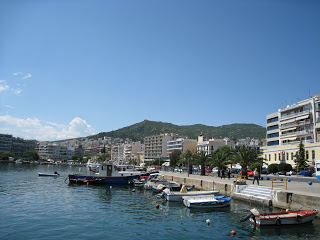 Kavala, ancient Neapolis today Kavala, ancient Neapolis today After Paul received the vision of the Macedonian call in Troas (Acts 16:6-10), he was joined by Timothy, Silas, and Luke, and they set sail to the region of Macedonian (Acts 16:11-12). It is significant that the first person plural pronoun, "we", is used in Acts 16:11, possibly indicating that the author of Acts, traditionally acknowledged as Luke, now accompanied Paul in his journey. Paul first landed in Neapolis, modern Kavala, the principal port of Philippi (Acts 16:11). A visit to modern Kavala shows why this is a natural port for northern Greece. The commanding and strategic location along the sea route from Thessalonica to Asia Minor makes this city an important port. From Neapolis, Paul and his companions would have walked approximately 16km (10 miles) to Philippi, slightly less than a day's journey on foot (Acts 16:12). Together with Rev Dr Paul Barker, we will be leading a team of 70 on a study tour covering the footsteps of Paul in Greeece. For those who will be joining us, you will be on an unforgettable trip following part of Paul’s Second Missionary Journey as narrated in Acts 16:1-18:22. Come and see, feel, and take a walk with Paul in the cities he visited. Listen to the special on-site lectures and investigate the connection between the archeological evidence and social-political settings of the ancient cities evangelised by Paul and his subsequent fascinating correspondence with the churches he founded. Discover the biblical significance of these cities and read the letters of Paul with new and fresh insights.
For the benefit of those coming on the tour, I will be posting a few reflections on some of the cities we will be visiting in the coming days. |
AuthorLecturer in New Testament Studies at Seminari Theoloji Malaysia. You can find out more about me by clicking here. BlogMy engagement in conversation with issues, reflections, and concerns related to my vocation as a seminary lecturer and theological education in general. Opinions expressed in this blog are strictly my personal views and do not represent the official position of the seminary Categories
All
Archives
November 2023
|
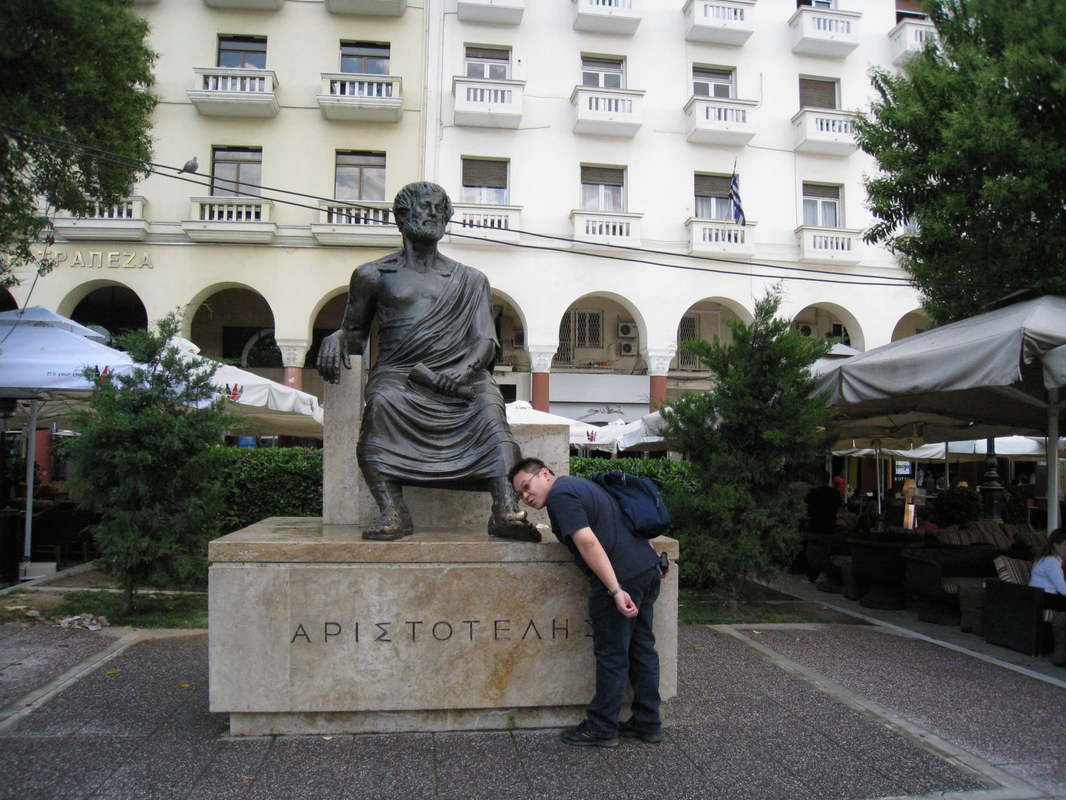
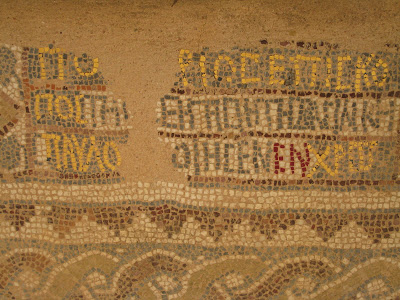
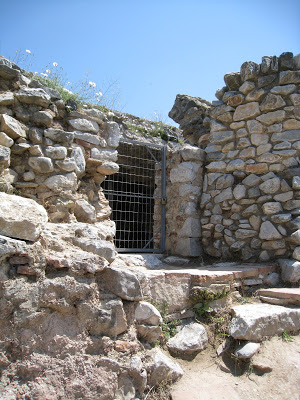
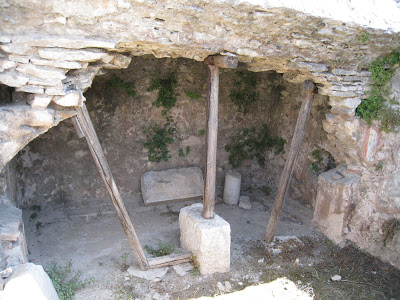
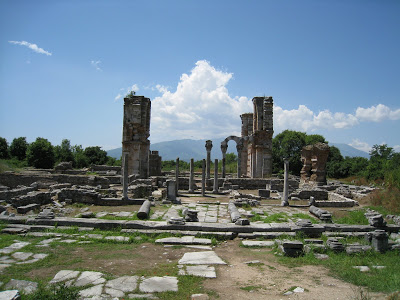
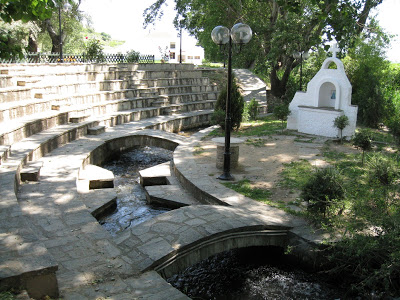
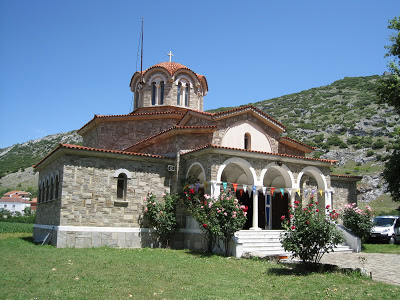
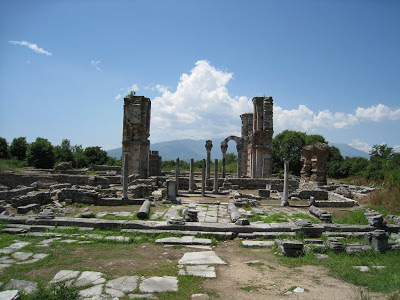
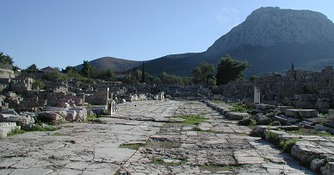
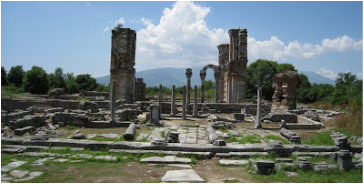
 RSS Feed
RSS Feed